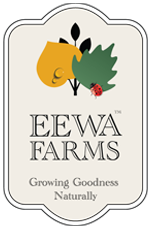
Hydroponic Romaine Lettuce: A Superior Choice for Quality and Sustainability
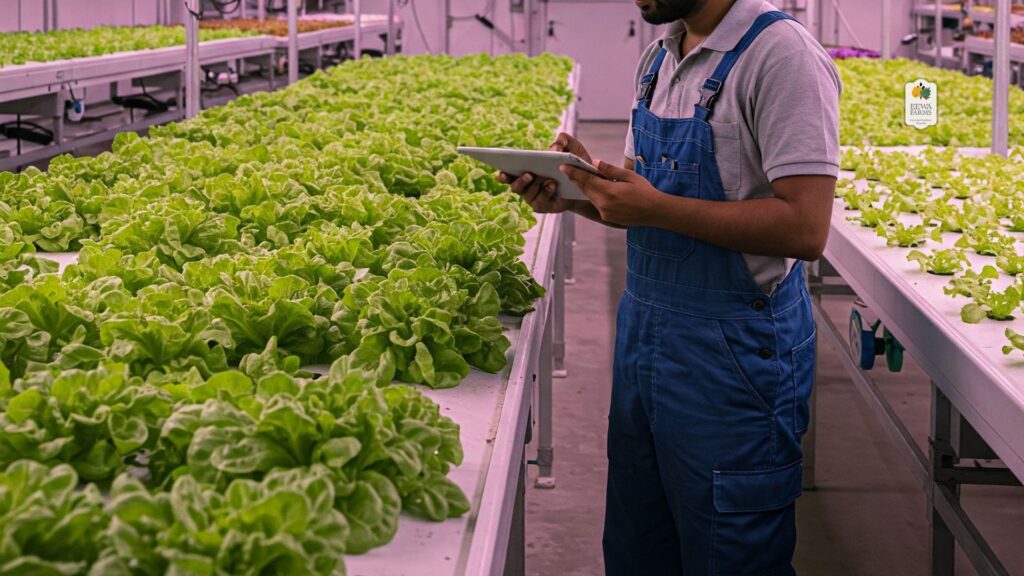
As India scales up climate-resilient agriculture, hydroponics is at the forefront of this transition. What was once an emerging alternative is now evolving into a data-optimized, AI-supported model of Controlled Environment Agriculture (CEA). AI is no longer a future possibility—it’s an active force in optimizing resource use, ensuring yield predictability, and driving consistent quality across hydroponic farms.
Precision Monitoring through AI Sensors
AI integration begins at the root level—literally. Smart sensors installed across hydroponic farms continuously capture real-time data on temperature, humidity, light intensity, EC (electrical conductivity), and pH. These data points are analyzed by AI systems that detect fluctuations and predict crop stress before visible symptoms appear.
Eewa Farms implements this to maintain optimal root zone conditions, eliminating inconsistencies in leafy greens, herbs, and fruiting crops. The outcome is uniform growth, minimized crop loss, and enhanced plant resilience.
Dynamic Climate Control for Year-Round Cultivation
Traditional farming is vulnerable to India’s unpredictable climate. AI-based systems now automate greenhouse operations—adjusting foggers, exhausts, cooling pads, and lighting based on predictive models. These adjustments ensure stable microclimates inside hydroponic facilities regardless of external weather volatility.
This innovation allows Eewa Farms to maintain uninterrupted production of coriander, lettuce, basil, and tomatoes even during peak summers or monsoons.
Nutrient Optimization via Machine Learning
In hydroponics, nutrient precision directly influences yield quality. AI-driven fertigation systems analyze real-time plant data and fine-tune nutrient dosing. Over time, machine learning models identify plant-specific nutrient curves, adjusting for crop stage, ambient conditions, and water retention patterns.
This granular nutrient control helps Eewa Farms maintain residue-free certification while maximizing nutrient absorption and reducing water-soluble nutrient waste.
Predictive Crop Scheduling and Demand Alignment
One of the biggest operational challenges in agriculture is aligning harvest volumes with fluctuating demand. AI-enabled forecasting tools now allow hydroponic farms to predict harvest timelines, estimate crop biomass, and match planting cycles with market trends.
At Eewa Farms, predictive models align sowing schedules with restaurant demand, institutional orders, and retail cycles. This minimizes overproduction, enhances supply chain precision, and prevents post-harvest losses.
-
Sale!
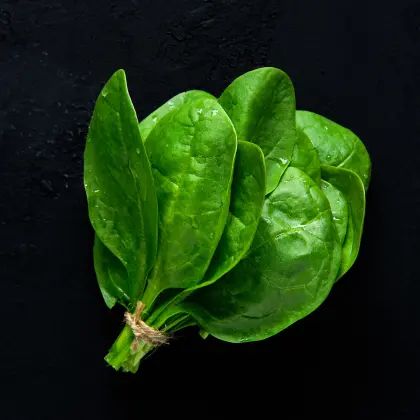 This product has multiple variants. The options may be chosen on the product page
This product has multiple variants. The options may be chosen on the product pageSpinach Large Leaf (Hydroponically Grown)
₹55.00 – ₹538.00 -
Sale!
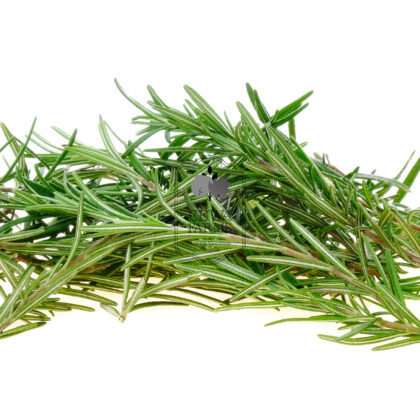 This product has multiple variants. The options may be chosen on the product page
This product has multiple variants. The options may be chosen on the product pageRosemary (Hydroponically Grown)
₹49.00Original price was: ₹49.00.₹45.00Current price is: ₹45.00. -
Sale!
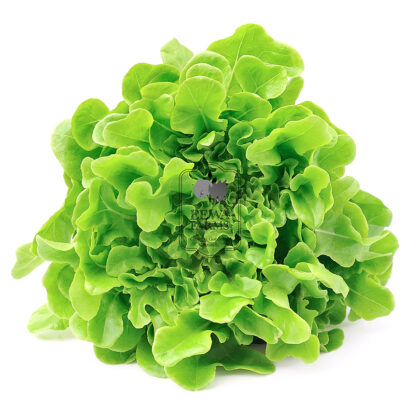 This product has multiple variants. The options may be chosen on the product page
This product has multiple variants. The options may be chosen on the product pageLettuce Locarno (Hydroponically Grown)
₹84.00Original price was: ₹84.00.₹65.00Current price is: ₹65.00. -
Sale!
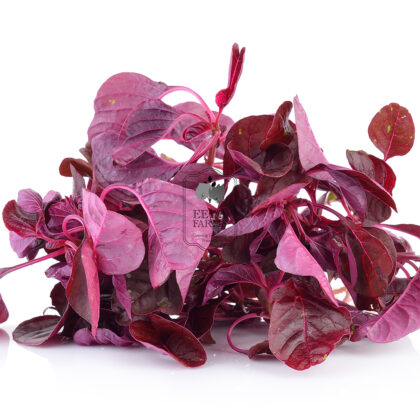 This product has multiple variants. The options may be chosen on the product page
This product has multiple variants. The options may be chosen on the product pageAmaranth (Hydroponically Grown)
₹60.00 – ₹228.00
AI-Powered Pest and Disease Alerts
Integrated Pest Management (IPM) in hydroponics relies on early detection. AI-powered imaging tools scan leaves and stems for disease patterns, pest infestation signs, or physiological disorders. These alerts trigger localized corrective measures—reducing the need for broad-spectrum interventions.
Combined with Eewa Farms’ zero-pesticide protocols, AI enables bio-secure farming without compromising crop health.
Operational Automation and Labor Efficiency
AI isn’t just about crop health—it streamlines farm operations too. Automated seeding, transplanting, nutrient mixing, and harvesting routines can now be managed through AI-integrated farm management platforms. These tools optimize human resource allocation and reduce repetitive tasks.
By integrating automation and AI dashboards, Eewa Farms is able to train operational staff to manage multiple zones simultaneously with precision and minimal manual intervention.
Data-Backed Quality Assurance
Hydroponic produce grown under AI supervision undergoes end-to-end quality mapping. From seedling stage to harvest, each batch is logged with environmental conditions, nutrient profiles, and deviation alerts. This traceability not only ensures food safety but also provides clients with transparent data on sourcing and production.
For institutional buyers and retail chains, this traceability builds trust and validates clean-label claims—making Eewa Farms a preferred partner for consistent, premium-grade produce.
Driving the Future of Indian Agriculture
AI is not a replacement for farmers—it is a decision-support system that empowers them. For hydroponic farms, especially in urban and peri-urban India, AI bridges the gap between agronomy and scalability. It transforms farming into a data-informed, precision-controlled process that aligns with India’s larger goals of sustainable, climate-smart agriculture.
Eewa Farms is investing in AI not as a trend but as a foundational element of future food production—where every leaf, root, and fruit is grown with science, not guesswork.
Conclusion
India’s next-gen hydroponic farms are moving from manual observation to algorithm-driven precision. AI is redefining how crops are grown, monitored, and delivered—with benefits that extend from the root zone to the consumer’s plate. For farms like Eewa, this evolution is not about technology adoption—it’s about building a scalable, safe, and sustainable food system for the country.

